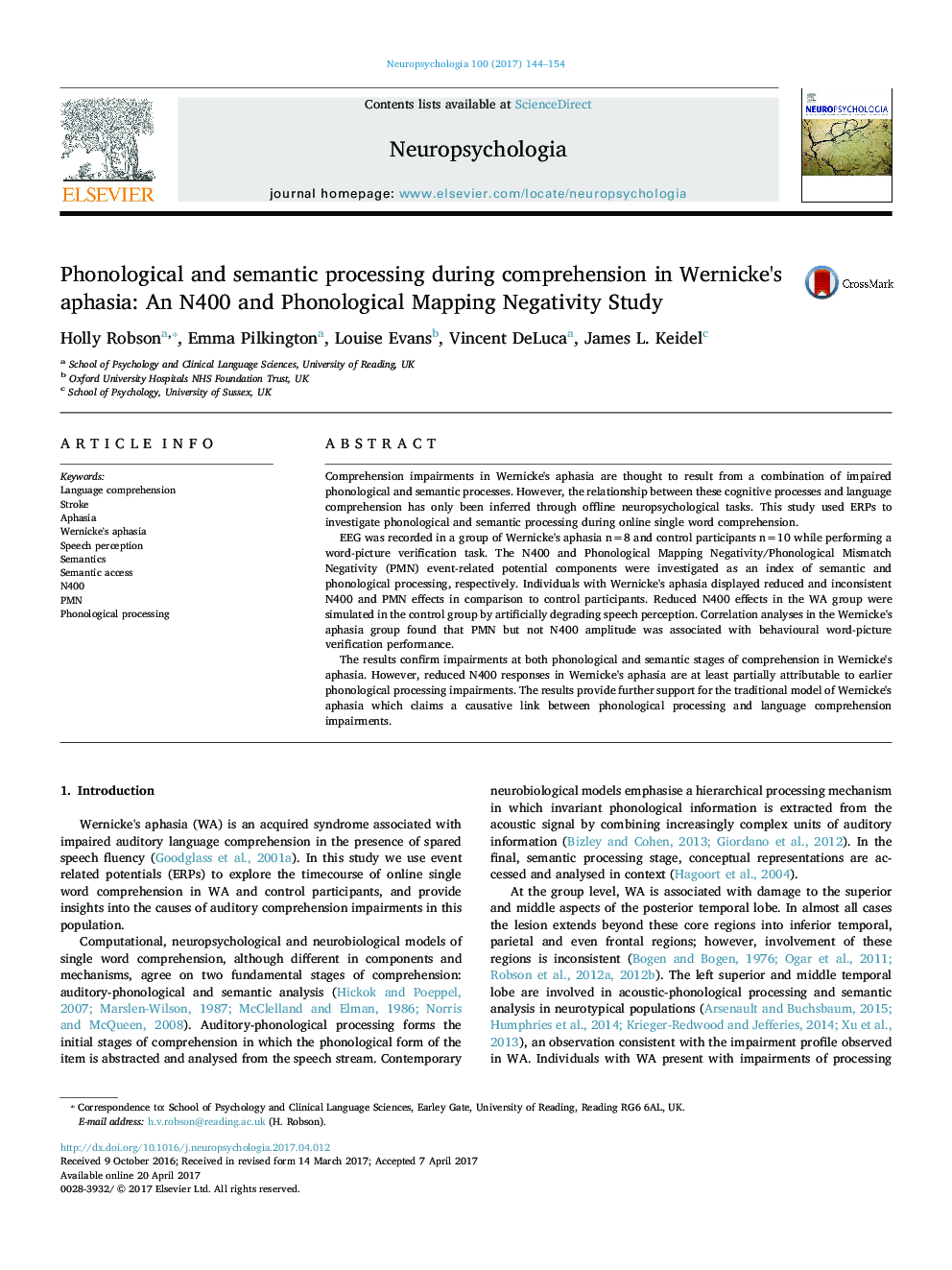| Article ID | Journal | Published Year | Pages | File Type |
|---|---|---|---|---|
| 5045074 | Neuropsychologia | 2017 | 11 Pages |
â¢N400 responses are reduced and inconsistent in Wernicke's aphasia.â¢PMN responses are inconsistent in Wernicke's aphasia.â¢Semantic and phonological processing is less fine grained in Wernicke's aphasia.â¢Impaired phonological perception leads to reduced semantic access.
Comprehension impairments in Wernicke's aphasia are thought to result from a combination of impaired phonological and semantic processes. However, the relationship between these cognitive processes and language comprehension has only been inferred through offline neuropsychological tasks. This study used ERPs to investigate phonological and semantic processing during online single word comprehension.EEG was recorded in a group of Wernicke's aphasia n=8 and control participants n=10 while performing a word-picture verification task. The N400 and Phonological Mapping Negativity/Phonological Mismatch Negativity (PMN) event-related potential components were investigated as an index of semantic and phonological processing, respectively. Individuals with Wernicke's aphasia displayed reduced and inconsistent N400 and PMN effects in comparison to control participants. Reduced N400 effects in the WA group were simulated in the control group by artificially degrading speech perception. Correlation analyses in the Wernicke's aphasia group found that PMN but not N400 amplitude was associated with behavioural word-picture verification performance.The results confirm impairments at both phonological and semantic stages of comprehension in Wernicke's aphasia. However, reduced N400 responses in Wernicke's aphasia are at least partially attributable to earlier phonological processing impairments. The results provide further support for the traditional model of Wernicke's aphasia which claims a causative link between phonological processing and language comprehension impairments.
